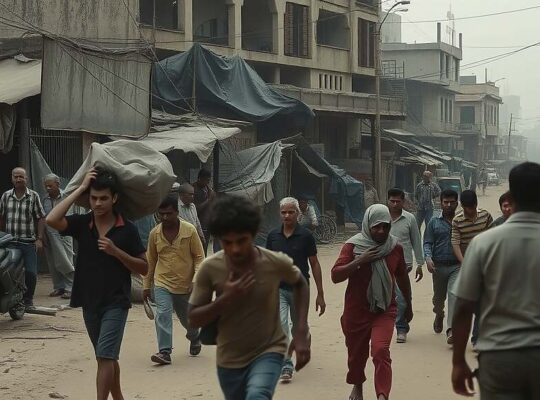The German Red Cross is issuing a stark warning regarding the nation’s preparedness for major crises or armed conflict, citing significant shortcomings in essential protective measures. Christian Reuter, Secretary-General of the Red Cross, stated in an interview with “Süddeutsche Zeitung” that “the population is scarcely protected in the event of a crisis.
The organization expresses concern over a range of deficiencies, noting that critical shortages exist across multiple sectors. Reuter emphasized the lack of functioning shelters, adequate crisis supplies, sufficient hospital capacity and essential medicines like antibiotics. He questioned the availability of resources needed to support citizens during emergencies, indicating that these are largely absent. “The shift in focus regarding civilian protection has not yet materialized.
This warning is being delivered as negotiations for the upcoming federal budget intensify within the current governing coalition. Referencing the German Armed Forces’ White Book, Reuter pointed out the state’s obligation, according to established guidelines, to accommodate and provide for between 800,000 and 1.6 million individuals. Current capacity however, caters for only a small fraction of that number. Reuter insists that current funding levels are inadequate to achieve necessary improvements. He advocates for an annual budget allocation of 2.5 billion euros for civilian protection, highlighting that current plans for 2025 only envision half that amount.
The Red Cross identifies a pressing need for investment within the healthcare system, describing it as already operating on precarious footing. Adequate preparation for large-scale crises remains entirely lacking. Contingency planning by the Armed Forces factors in a potential surge of 1,000 casualties per day. This scenario necessitates the availability of 10,000 to 20,000 hospital beds earmarked for crisis and conflict situations, even if initially vacant.
In response to these critical gaps, the Red Cross is proactively developing a specialized pool of 2,000 professionals, including nurses, physicians and technicians. These individuals will undergo targeted training to be deployable in scenarios involving armed conflict and other major crises, with the full reserve expected to be operational by 2029.












